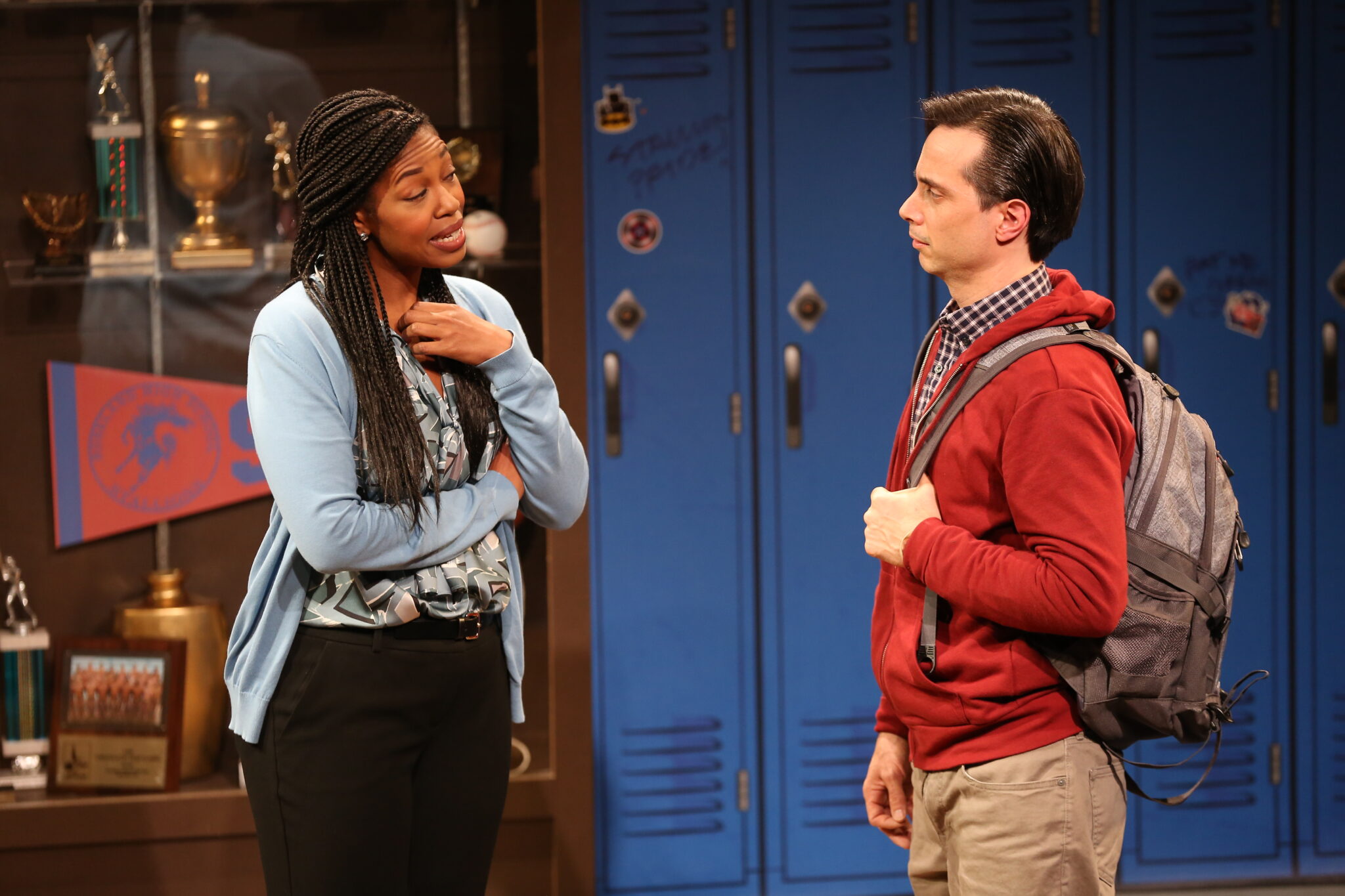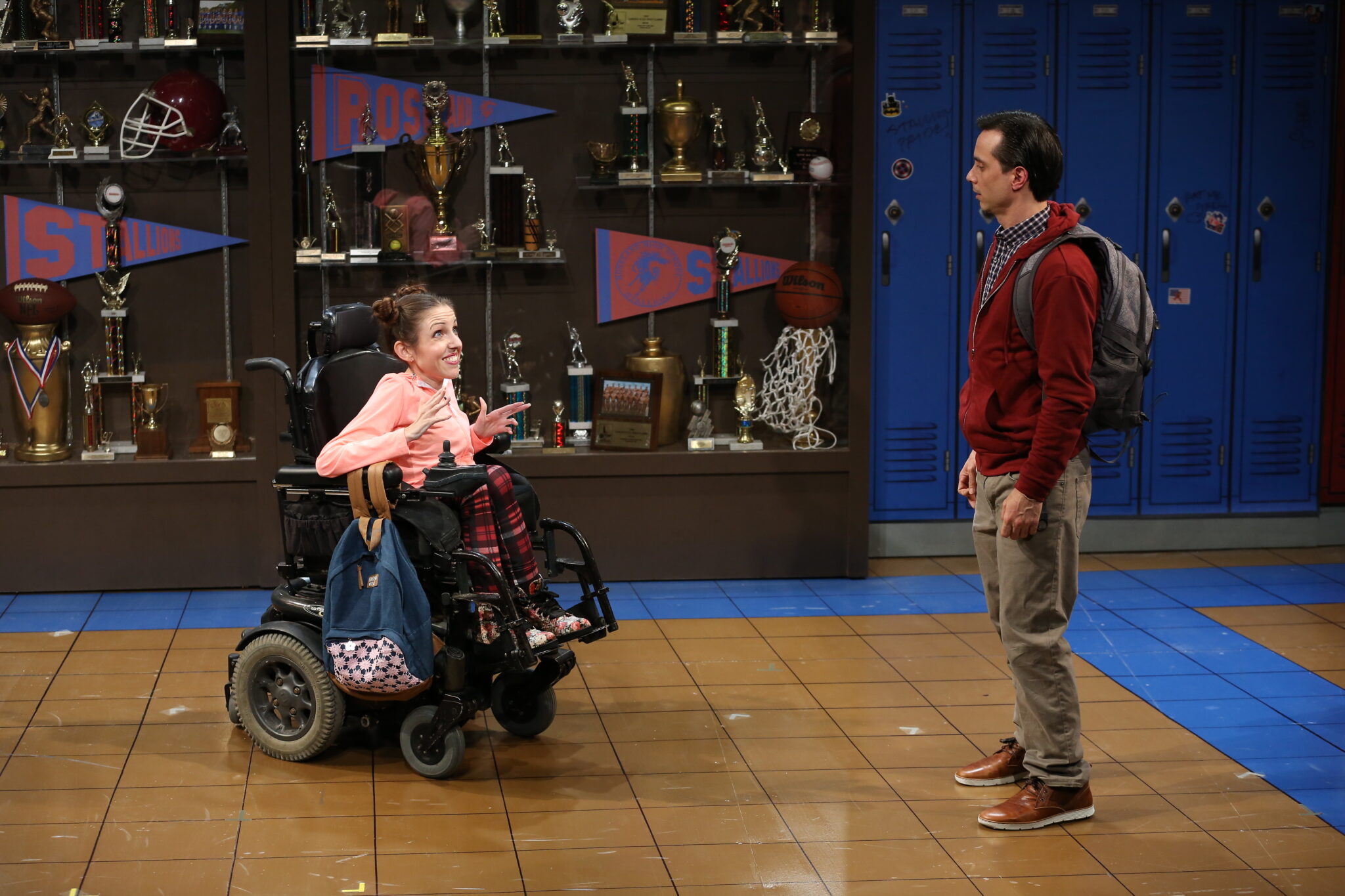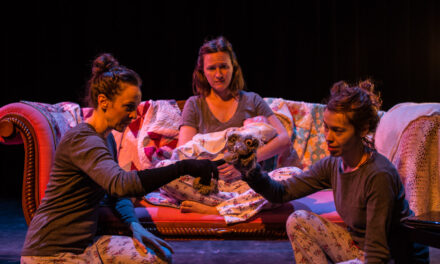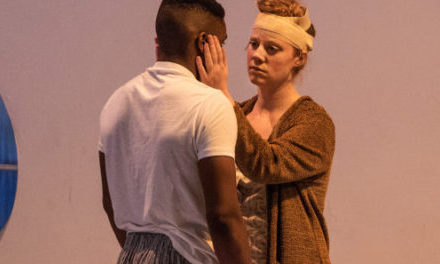Produced in conjunction with Ma-Yi Theater Company, the world premiere of Teenage Dick at The Public Theater is a clever re-telling of Shakespeare’s Richard III. Richard, played by Gregg Mozgala, has CP and he feels that his disability affects how everyone in his high school treats him–he is either ignored, humiliated, or pitied. To get back at his peers, he decides to run for class president and defeat Eddie, the most popular jock in school.
While not seemingly sinister, as events unfurl, Richard becomes increasingly villainous. Not much holds him back from his plans, not even his girlfriend’s suicide after he tells the entire school about her abortion to gain the presidency. Yet, it isn’t enough when he does win the title; he decides that he must destroy Eddie by inflicting a disability on him.
As a Shakespeare adaptation, the play worked well, especially with the add-ons of certain lines and specific names of places one would only know if well-versed in Richard III. But do we really need another Shakespeare reconstruction where the villain is “bad” because of his disability?

Marinda Anderson and Gregg Mozgala in Teenage Dick | Photo Credit: Carol Rosegg
Originally commissioned and produced by The Apothetae, which is run by Mozgala, it’s no surprise that Teenage Dick is marketed as a play that explores disability and how being treated as less than human can be disastrous. The company is “dedicated to plays that explore and illuminate the ‘Disabled Experience.’” However, this production shows one disabled experience that is seen too often: the narrative of villainy that gets placed on the disabled.
While it is important to show disability in all kinds of roles–good, evil, and in between–the Richard in this play is the villain because of his disability and its effects. He makes no effort to be a humane person and claims he doesn’t have to choose the high road just because he’s disabled. To get what he wants, Richard exploits his disability on multiple levels to receive pity from others, yet he complains when he gets it unwarranted, which makes him a hypocrite and places him on the same level as his over-enthusiastic English teacher, who sees Richard as inspiration porn.
However much Richard blames his villainy on his CP and wanting to get back at those who have treated him wrongly because of it, his evilness is inherent. He may use disability as a scapegoat, but having an able-bodied Richard in this play wouldn’t change much about the story or its events–it would still be about a boy who wants something and will stop at nothing to get it.
No sympathy or empathy is felt for Richard at all throughout the play. This poses a problem–if the audience can’t feel this way toward the main character, they certainly can’t understand that person’s problems and thus, won’t leave the theater feeling any different. In this case, having no trace of disability would be better than including this twisted view of it, as it’s very possible that audiences will leave with a negative portrayal of disability.
And while the point might be not to hate Richard but to understand his reasoning behind his actions, that’s not constructive. Why can’t there be a likeable main character with a disability on stage who can do all they’re capable of? Before those with disabilities are painted as villains (again), let’s positively represent them as well-rounded and likeable human beings.
The one positively-portrayed character with a disability is Buck, played by Shannon DeVido, who is more dynamic and realistic than Richard. Buck is well-rounded–there are times when she does un-admirable things and times when she takes the path considered to be morally correct. In short, she is a person who is a combination of good and bad, who has disappointments and hopes just like everyone else. She is just a disabled person, not overtly angelic or evil. More characters like Buck need to have their stories told.

Shannon DeVido and Gregg Mozgala in Teenage Dick | Photo Credit: Carol Rosegg
Jesse Cameron Alick, Company Dramaturg of The Public, ends his dramaturgical statement in the program with:
“…this brilliant play explores the disabled experience with such irreverence and humor. I hope it makes us leave the theater scratching our heads and asking ourselves why we rarely see disabled actors on our stages. This material is proof we should.”
It’s true that we should see disabled actors on stage, but not in grossly over- or under-exaggerated ways. And while Teenage Dick does insert some general truths about the negative aspects some with disabilities experience, it can’t truly explore the disabled experience, as those with disabilities don’t all experience the same ups and downs.
The ending line of “You already decided who I was before it was mine to choose it, so what else could I do but act out the role that’s been writ?” gives the exiting audience something to think about in terms of how they judge appearance immediately and make overarching assumptions, but that’s the only piece that’s substantial in the entire play. Instead, maybe this is a theme worth putting at the center of a future play to show that we don’t have to keep telling the same kinds of stories about disability and that disability can have a positive component–or even have nothing to do with a plot at all.
This post was written by the author in their personal capacity.The opinions expressed in this article are the author’s own and do not reflect the view of The Theatre Times, their staff or collaborators.
This post was written by Madison Parrotta.
The views expressed here belong to the author and do not necessarily reflect our views and opinions.

















